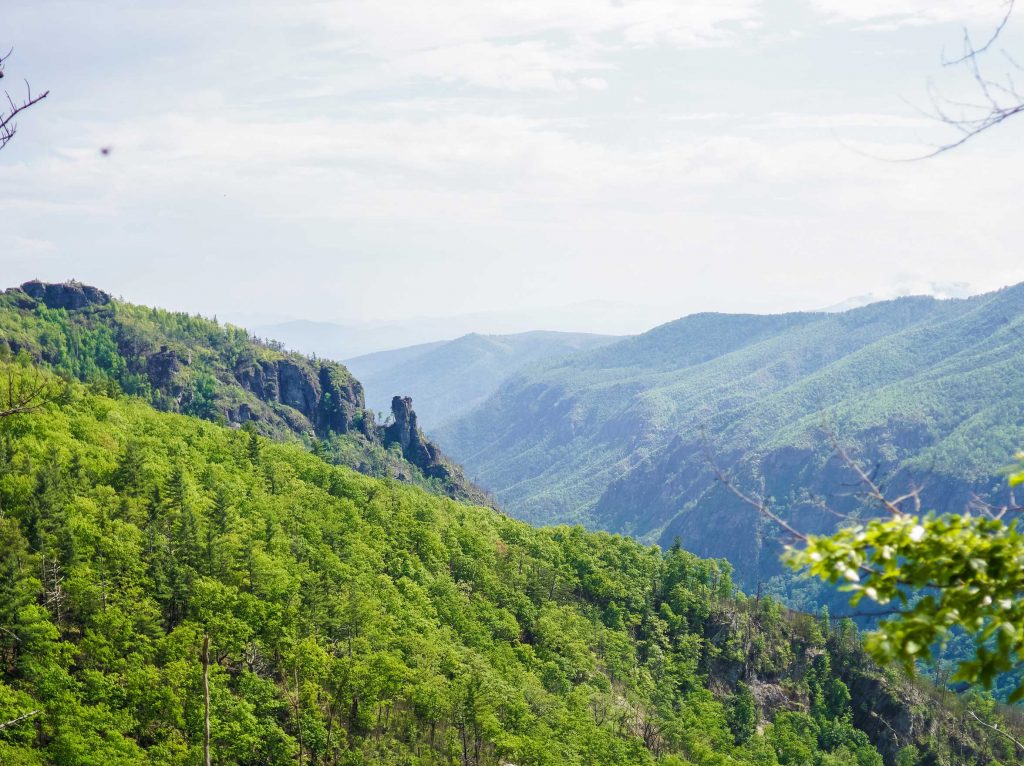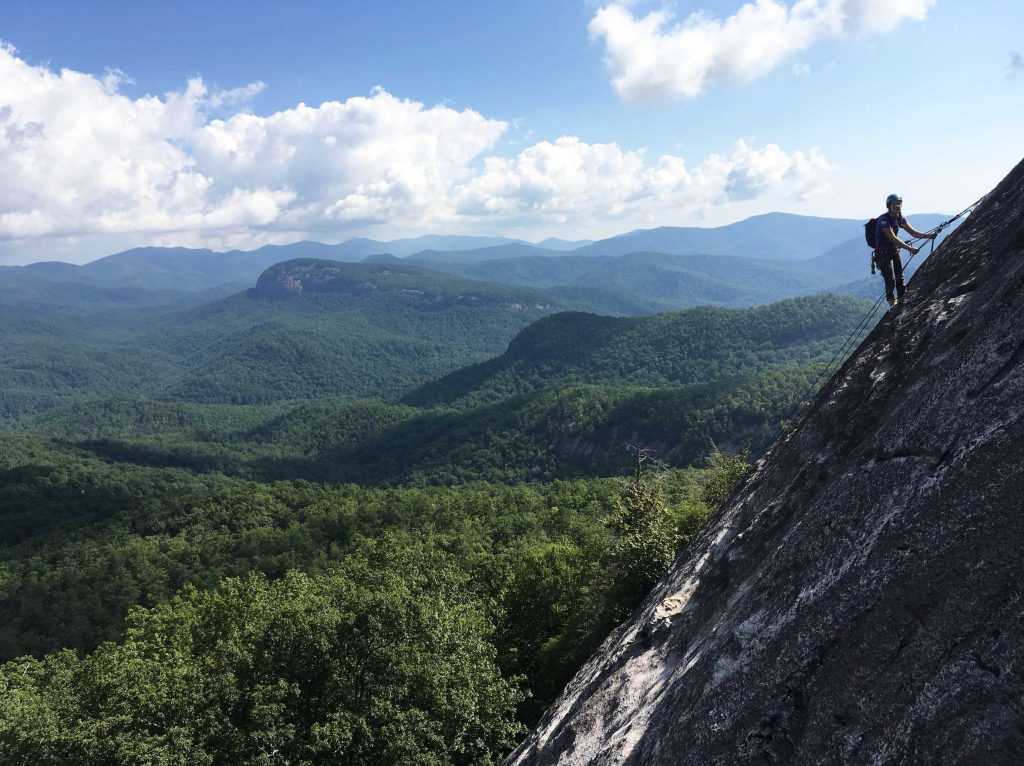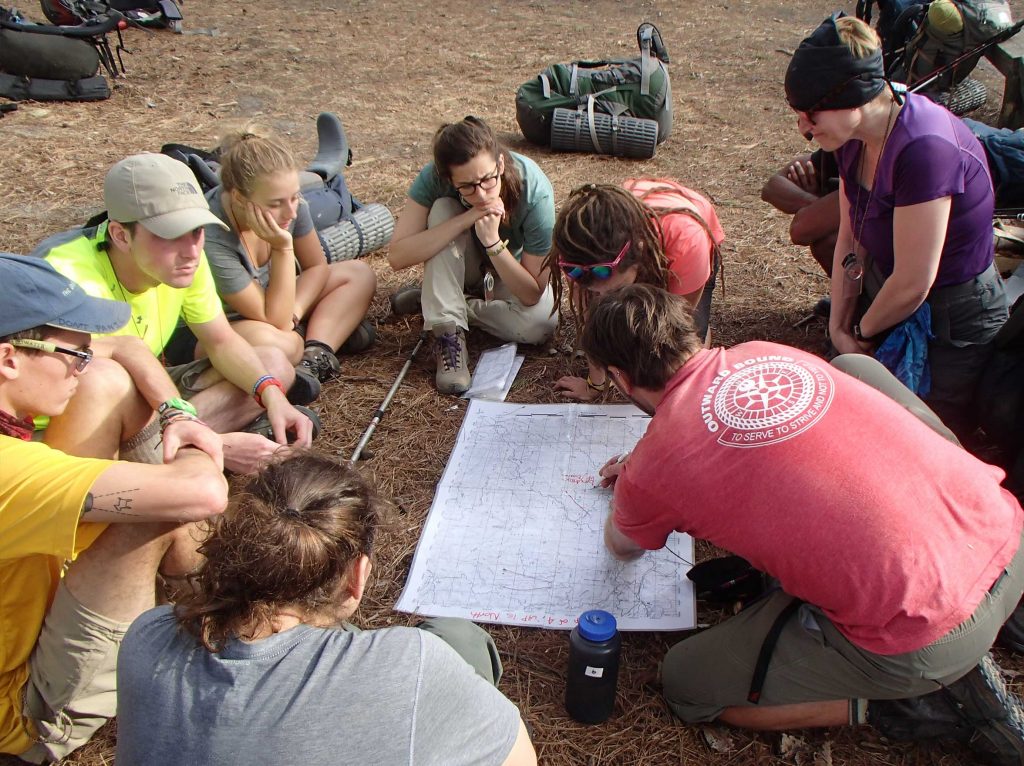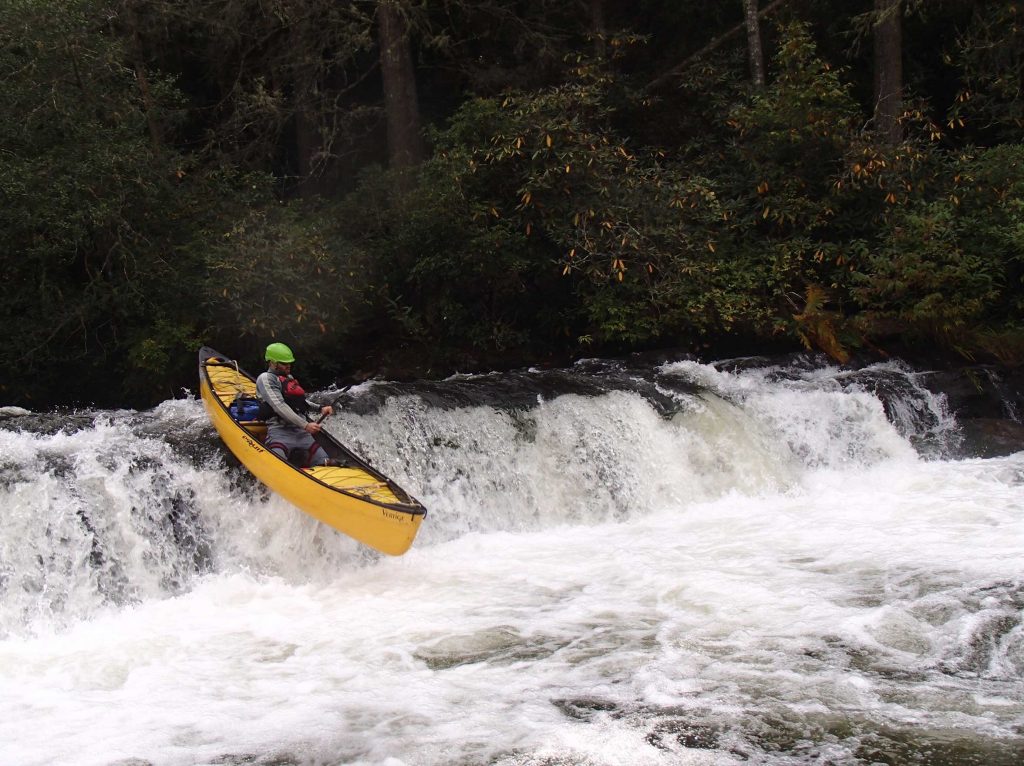Taylor Sinason decided she wanted to do something different with her life so she quit her job working at Whole Foods, packed up her apartment and enrolled in an Outdoor Educator expedition with Outward Bound. These courses prepare students to pursue careers in outdoor education, guiding groups of people into the wilderness, leading expeditions for summer camps or college outdoor programs. Outdoor Educator courses teach skills needed to become an Instructor of our natural world including technical and safety certifications and leadership experience. We sat down with Taylor to ask her why she decided to change directions in her life and why she chose to become an outdoor educator.
Why did you decide to take an Outdoor Educator course?
I wanted to turn my passion for the outdoors into a more central part of my life. I had all these interests—backpacking, rock climbing, hiking, traveling and exploring—but it was a side note to making a living for myself. I was making a living in order to do more of those things, and I wanted to bring this passion more into focus. I’ve learned a lot about myself through these activities and wanted to facilitate that experience for others. For me there was great passion, challenge, confidence and awe from being in the outdoors.
I didn’t have any “training” for working in the outdoors, so I didn’t know how to make moves toward this career, especially coming from the service industry. So the Outdoor Educator course was a concrete step in that direction.

Photo shows students learning a lesson during their Outdoor Educator course. Photo by Jesse Swedlund.
What did you learn on your course?
My course was 50 days in the Blue Ridge Mountains in North Carolina. It started with a nine-day immersion—strictly a student experience. We learned campcraft, backpacking and how to navigate with map and compass. We got back to base camp and had a nine-day Wilderness First Responder (WFR) course, which is the professional wilderness medicine standard for working in the out-of-doors.

The Blue Ridge Mountains, or Southern Appalachians, is one of the oldest mountain ranges in the world.
Next we focused on rock climbing for five days. The first three days we learned to belay and tie in, practiced top rope climbing and then progressed to a multi-pitch climb. The last two days were workshops focused on teaching those skills as an outdoor educator. We learned about anchors, lead climbing, gear and site management. So we had the student experience and then our Instructors gave us more tools so that we could learn to facilitate that kind of experience for others.
We also spent five days on the river. We first learned basic strokes on flat water, then learned to maneuver on whitewater and catch eddies (an eddy is a circular current of water). We had the student experience, plus learned higher level skills like rope throwing and rescue techniques. I had never done any whitewater paddling and I was terrified! Now I really enjoy it and it’s less scary. A lot of the course was exposure, to see what outdoor activities we were really interested in.
We also had a three-day Solo, and then a few workshops related to finding work in the outdoor industry. We navigated outdoor educator job listing sites and discussed the difference between being a guide and an Instructor. One workshop was on seeking mentorship, and another was on bringing outdoor education to the traditional classroom.
What were the highlights of your course?
I was already a rock climber but hadn’t done any multi-pitch climbs. So doing my first multi-pitch was so amazing! I went up with the biggest smile and happy tears. The whole way up the climb, I was blown away.

The friendships I made on the course were huge. I keep in touch with several people from my course. Even though we all do very different things now, we shared a powerful experience, and other people in my life don’t understand what I’ve been through, but these people do. They get it.
Solo was very important for me. Being alone, after I had done so much and learned so much was really empowering. After going through all these challenges, being removed from the life that was so familiar to me, being immersed for such a long time without distraction—Solo was a time for a lot of reflection and revelation. I thought a lot about what comes next in my life. I had learned a lot about who I am, and what I stand on.
What was the most challenging part of your course?
I’d say the interpersonal skills were most challenging. I experienced some pretty heavy conflict with one person in my crew, another strong woman leader. I worked hard to be collaborative, and use the conflict resolution skills we were taught to use. In my life, I’ve often been a people pleaser, even when I had strong opinions. I learned, on the course, to stand my ground while being kind and respectful and an active listener.
When there’s conflict in the group, the crew feels it. I learned a lot about addressing it, staying patient and continuing to look for ways that will help resolve it.
You’ve been a student and now an Instructor. Why do you think Outward Bound is so impactful?
I think one of the biggest things I’ve seen both in my own experience on my course and as an Instructor, is to be exposed to something and say “I can’t do that,” but then you do it. At home we always have a choice, but in the wilderness you’re faced with harder choices: “Do we cook dinner, or do we starve? Do we climb that rock, or stay on the side of it forever? Do I speak honestly about how I feel about our group dynamic, or let it fester inside of me?”
You have the choice, but you’re required to show up. And if you don’t show up, what does that mean for the rest of your crew or your family? Pushing through those “I can’ts” and finding what exists on the other side of that statement is what makes it so powerful.
When I first started my course as a student, I was just learning map and compass and it was frustrating for me. Some people on my course already had experience with navigation, and they stepped aside so that others could learn it. I was overwhelmed by it at first. On day 2, people were watching me and I was feeling stressed out, wondering what I had gotten myself into . . . 50 days of this?!
Later, on our independent final expedition, two of us led the navigation for the whole group. We had the least experience with navigation starting out and had worked on mastering this skill. The transformation from being overwhelmed to being a lead navigator, using this newly acquired skill, was really empowering.

Outdoor Educator courses allow you to work in and through the widest variety of wilderness environments and develop high level skills in each, including navigation in different terrain.
What was it like to teach your first course as an Assistant Instructor?
My first course as an Instructor was so powerful, just knowing that this was what I was doing now. When I took my Outdoor Educator course, I was more myself than I’ve ever been. To take that newfound sense of purpose and direction and confidence in my skills, while being able to offer that to others was incredible.
Having been in the student role, I really understand what my students are going through.
It’s important to me to remind my students that even though they are going back to the same familiar place when they return home, they are having experiences that can change who they are.
Who should take an Outdoor Educator course?
If you want to take your passions to the next level and want to help others, that’s the role of an outdoor educator. You help others find their passion, you inspire and allow people the space to explore who they are.
And if you are not as inclined to pursue a career in outdoor education but still want to have a really powerful wilderness experience that helps you learn more about yourself, consider taking a Pathfinder course. I think the more you learn about yourself, the more you’re able to live the life you want.
Is there anything else you’d like people to know?
People arrive at Outward Bound courses from different paths. I signed up for my course saying, “I didn’t go to school for this. I am underqualified.” But going through the course, it was kind of like college in that it was an educational experience that leads to a job in a field I’m interested in. And I’m not $100,000 in debt.
One other thing is that I knew I needed to make significant changes in my life. I quit my job and packed up my apartment. And even though I had tied up loose ends and moved my life, I was still having doubt. Two days before the course, I asked myself, “What have I done? Who do I think I am, to do this thing?” And I got there and had no doubt that I was exactly where I needed to be.
Lean into the doubt! Be open to being uncomfortable, because you are about to do it for 50 days.
For anyone considering this course, I say “Do it!” There are a million reasons not to do it. You need just one to do it.

Outward Bound leads the outdoor education industry in technical skills and experiential learning, providing a coveted foundation to jump-start an outdoor-involved career.
About the Author
CJ Wilson’s career in outdoor education has taken her from Maine to Minnesota, and from the Sierra Nevada to Patagonia. A long-time Outward Bound Instructor, she writes from her base camp in Asheville, NC. When not writing, she might be found working as a ranger in a national park, bicycle touring or hiking her favorite trails near home.
OTHER POSTS YOU MAY LIKE
Read More
Read More
Read More




